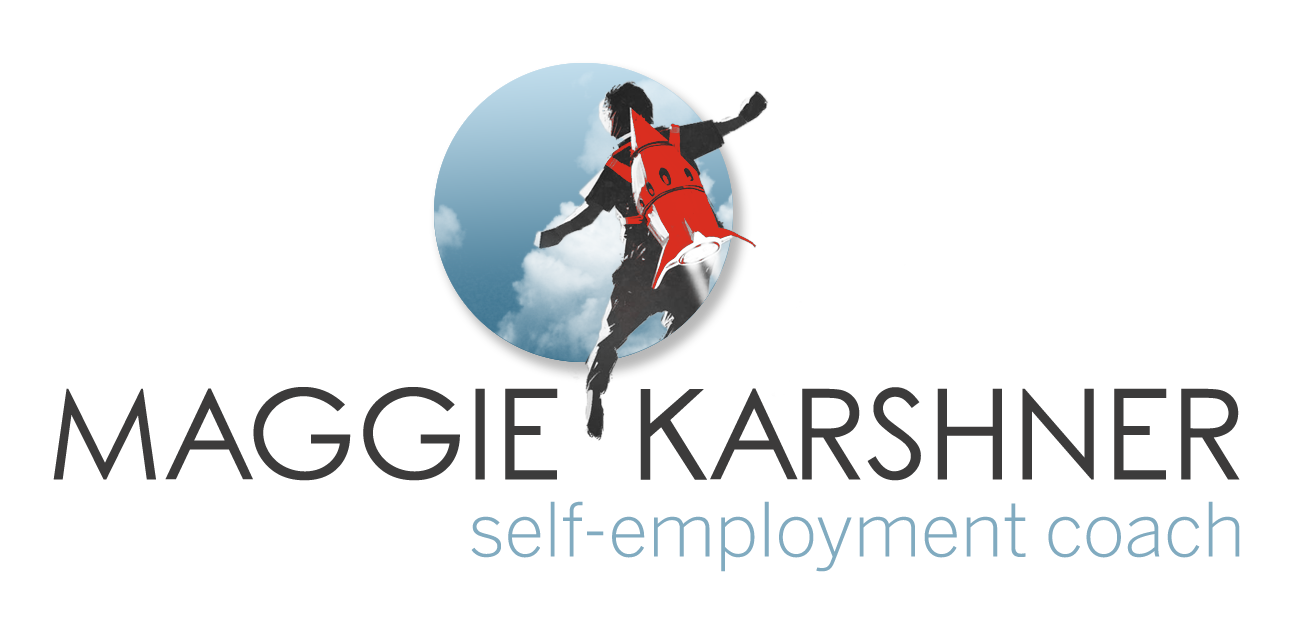3 Lessons to Help You be a Good Self-Employed White Person
/It’s not February. There have been no recent media headlines about a Black person being killed. It’s been a minute since our last protest. So why am I writing about racism right now?
For those of us in positions of privilege, it’s vital that we are in the fight with marginalized, oppressed and BIPOC folks always, not just when there are headlines.
Right now we’re not responding to any hot news. This is precisely the right time to check in with your own anti-racist practice. Is it really a practice (e.g. something you do habitually and regularly?) Or is it more of an actionless commitment? Perhaps this would be a good time to refocus your source of motivation?
Where does your motivation come from when there is not hot news? How do you know what action to take when organizers aren’t telling you to march?
These questions speak to my own personal journey with anti-racism. For years I’ve kept my motivation flowing through learning: reading books, taking classes, convening in groups, following the ARD. And while these keep my anti-racist intentions centered, they are only one type of action to take. I’ve known for many of these years of “study” that there was far more work to do. What steps to take especially in my work life were not clear to me. Easy lists provided by the internet didn’t seem applicable to a self-employed person. Despite having infinite creativity for new marketing plans, somehow an anti-racism plan for my business never seemed to materialize.
What’s a Girl to Do?
At the beginning of the summer, I undertook a Racial Equity Audit for my business. Equity Audits have become relatively common at the corporate level. An Equity Audit is complicated work in hundred-plus person companies. When you’re just a solopreneur like myself, the facilitation and interviews common in such audits are inappropriate. I am the only true stakeholder. As a single-person business, I can’t increase the racial diversity in my C-Suite positions. There’s categorically no way to have people of color in leadership positions. The leadership of my business is me, so it’s gonna be White.
It can feel easy to throw the whole idea out. And as a White person, that’s part of how my privilege shows up. Being aware of that compels me to act in opposition to my privilege because I know that’s the path towards a more equitable world. So what is a small business owner to do?
You get an Equity Audit from someone who’s designed it for businesses like ours! I mean, I guess *you* don’t have to do that. But this is what I did. And I’m going to share my experience to help illuminate options and considerations you might not have considered as you walk your own anti-racist journey.
What Even Is an Equity Audit for a Sole Proprietor?
For my Equity Audit, I worked with Martha Hurwitz, but there are plenty of professionals who do similar work. Since this is just my experience, I can only speak to the work Martha and I did together. Here’s what it included:
Pre-meeting survey
First meeting where we discuss the results of the survey in depth
Second meeting where we brainstormed and began to evolve a master list of ideas (which became a 200-cell spreadsheet!)
Third and final meeting where we moved from ideas towards next steps
These meetings took place over about a 6 week period. It was the perfect amount of time to dive deep, make a plan, and then shift into a more action-oriented position.
3 Key Takeaways
I want to tell you all about everything in that 200-cell spreadsheet of ideas that Martha and I generated but, in the words of Inigo Montoya: Let me explain... No, there is too much, let me sum up. Here are the top three nuggets of learning from my Equity Audit:
Smart = Slippery
I’m an overachiever who knows how to say smart, impressive things to the teacher. But that lets me feel like I’ve done “the work” without actually doing anything new or challenging my own status quo. The Equity Audit not only illuminated this tendency (I had no idea!) but also generated so many new and challenging shifts in my work. As I tackle these shifts, I’ll make progress on my own scale instead of in relation to my peers. I can now challenge myself and do important work that only I can do, instead of being stuck in the trap of “it’s better than the status quo, but it’s so far from perfect.”
My Business Can Be Anti-Racist
Small business owners have a tremendous amount of efficacy in their business. We can control and influence SO MUCH. Yet I used to throw up my hands that since I’m a White person my business will never be truly equitable. And while my skin color won’t change, there are still plenty of things I can do to deepen my own anti-racist practice and help my clients and readers do likewise. If you continue to follow my blog and newsletter I’m sure you’ll notice the changes as I start to roll them out in the coming months and years. While your business might not make the changes mine will, I’m confident that you can also have an anti-racist business. With some help from professionals specializing in this area, you can find the right shifts for your business.
Relationships Transform
Nothing can be done in a vacuum. My head knew this before the Audit but my practice didn’t. Martha participated with me in my personal anti-racism work, facilitated the start of my anti-racist business work, and drew me out of patterns of stuck-ness. In getting unstuck, I’ve built new relationships with anti-racism coaches and now, I’m being advised by Petra Vega who coaches activists on how to turn their liberatory values inward, into action. In our first session, Petra left me with the question: What makes a transformational relationship? We’d been discussing how our culture frequently frames relationships as transactional. “I do this for you, you’ll do this for me.” “So-and-so “owes” me one.” Etcetera. Ya’ll, it’s like I’m Neo in the Matrix and all the code is streaming all around me: Relationships transform! To make them transactional is to hinder them from being all that they can be! Get people in on the action with you. It’s more fun and thoroughly magical!
Next Steps
I’m sharing my story as one case study of what you can do to incorporate your anti-racist commitment into your business. Your anti-racist journey might take a different shape. There are tons of folks out there who can support you on your anti-racist journey. There are therapists, coaches, and consultants. While I opted to start this journey with someone from my own racial group, that definitely doesn’t have to be where you start! Here are some folks who can help you do this work: (I’m trying not to play favorites; they’re in reverse alphabetical order by first name.)
Find someone you can trust to help you find the balance between complacency and overwhelm. That’s where the growth and change happens!




